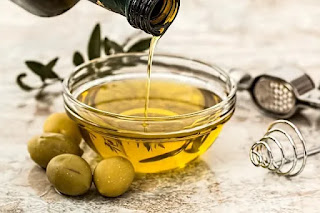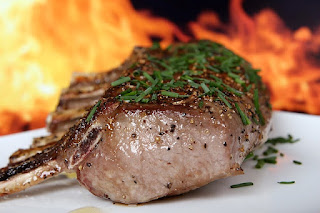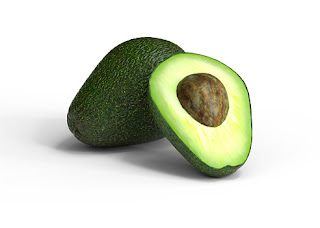Many dieters have quit the consumption of fats and fatty foods because they were poorly enlightened about what fats are and what they are not.
What are fats?
Fats are esters of glycerol and fatty acids, which is one of the six classes of food. Fats are grouped into liquid (oil) and solid (fats).
They are utilized in the body for production of energy, this is the commonest importance of fats everyone knows about.
In addition to this, satiety is brought about by fats in foods.
Fats are grouped basically into bad fats and good fats!
Bad fats
Bad fats are predominantly everywhere, in the kitchen and on the market shelves.
When medical practitioners ask one to stop consuming fatty foods, there are actually referring to these set of fats - bad fats!
Bad fats are not good for our health.
Types of bad fats
Saturated fats and trans fats
Saturated fats
Saturated fats are usually solid in form and very stable.
Animal fats come under saturated fats. Other sources of saturated fats are full cream milk, butter, ice cream, fatty cuts of meat among others.
Trans fats/hydrogenated fats
These are liquid fats which had undergone further processing.
Often, manufactured by the hydrogenation of oil (addition of hydrogen to the double bonds in oil thereby converting it to single bond - a very stable bond). By and large, solid fats are formed
Sources of trans fats are margarines, fried foods, grilled foods, and baked foods et cetera.
Health implications of eating bad fats
They are known for raising LDL cholesterol (low density lipoprotein), a bad cholesterol responsible for clogging arterial walls.
Bad fats are one of the major causes of cardiovascular diseases
This set of fats promote insulin resistance
And of course, cause inflammation.
Good fats
Most good fats are always in liquid form.
Good fats are what you're supposed to replace bad fats with because it is not healthy to completely stop the consumption of fats.
Types of good fats
Monounsturated fats and polyunsaturated fats.
Monounsaturated fats
These fats are healthy and should be taken regularly. Sources of monounsaturated fats are avocado, cashew nut, olive oil, canola oil, peanuts/groundnuts and so on.
Learn the health benefits of peanuts/groundnuts here
Polyunsaturated fats
Polyunsaturated fats are similar to monounsaturated fats, the only difference is in the number of double and triple bonds in them.
Sources of polyunsaturated fats are walnuts, corn oil, flaxseed oil, safflower oil, soybeans oil, fish (mackerel, salmon, herring and tuna), oysters and chia seeds et cetera
Have you heard of omega-3 and omega-6 fats? Polyunsaturated fats are rich in these two types of fatty acids.
Polyunsaturated fats are mainly present in fish and nuts.
Omega-3 fatty acids are grouped are grouped into docosahexanoic acids (DHA) and eicosapentanoic acids (EPA).
Most good fats are always in liquid form.
Reason you should start eating good fats!
- For proper functioning of the brain
Omega-3 fats play a vital role in the health of the brain, nerves and eye development in infants. Pregnant women are recommended to take more of this fats since the body cannot make it on it own. Therefore take lots of fish, corn oil, corn, soybean oil, flaxseed oil and other ones.
- Immunity booster
Omega-3 fats are good immune booster, they maintain healthy immune system and thus the body can fight against diseases. In addition, omega-6 fatty acids are good for maintaining healthy genes, enhance blood clotting and improve immune health.
- Good heart health
American Heart Association recommends the consumption of two serving of fish or 8 ounces of fish weekly. This is because Omega-3 fats in fish reduces the level and influence of LDL cholesterol which clogs arteries and eventually causes cardiovascular diseases.
- Reduction in belly fat
According to American Diabetes Association, consumption of monounsaturated and polyunsaturated fats will reduce the quantity and the rate at which fat cells are formed inside inside the tummy.
Also, incorporating goods fats in meals tend to raise satiety (feeling full after each meal). By such means, the rate at which one feels hungry is reduced.
Hence, the amount of calories consumed will decrease and they will not be much calories in form of fats to store inside the belly (liver, other organs and subcutaneous layer of the belly).
- Skin health
Do you want a supple and moisturized skin? Then opt for good fats like, fatty fish, avocado, walnuts and sunflower oil.
Omega-6 fats and mega-3 fat are good for grooming a springy skin. Omega-3 oil in fatty fish tend to reduce inflammation and sun burn which could result to diverse skin conditions.
Fatty fish are good sources of vitamin E - an antioxidant responsible for shielding the skin against the attacks of free radicals.
Do you know fish oil are excellent source of zinc? Without zinc the skin will be proned to lesions, inflammation and slow healing of wounds. Likewise, zinc is important for the formation of new skin cells.
Avocado is rich in vitamin E and vitamin C. These vitamins are effective in protecting the skin from oxidative damages of UV rays. In addition, these vitamins delays wrinkle formation on the skin.
- Reduces the risk of diabetes
Studies showed that substituting saturated fats with good fats will be very effective in reducing the occurrence of diabetes. Since saturated fats bring about insulin resistance which is the major challenge in type 2 diabetes. Consuming healthy fats therefore will improve the sensitivity of insulin receptor organs.





Comments
Post a Comment